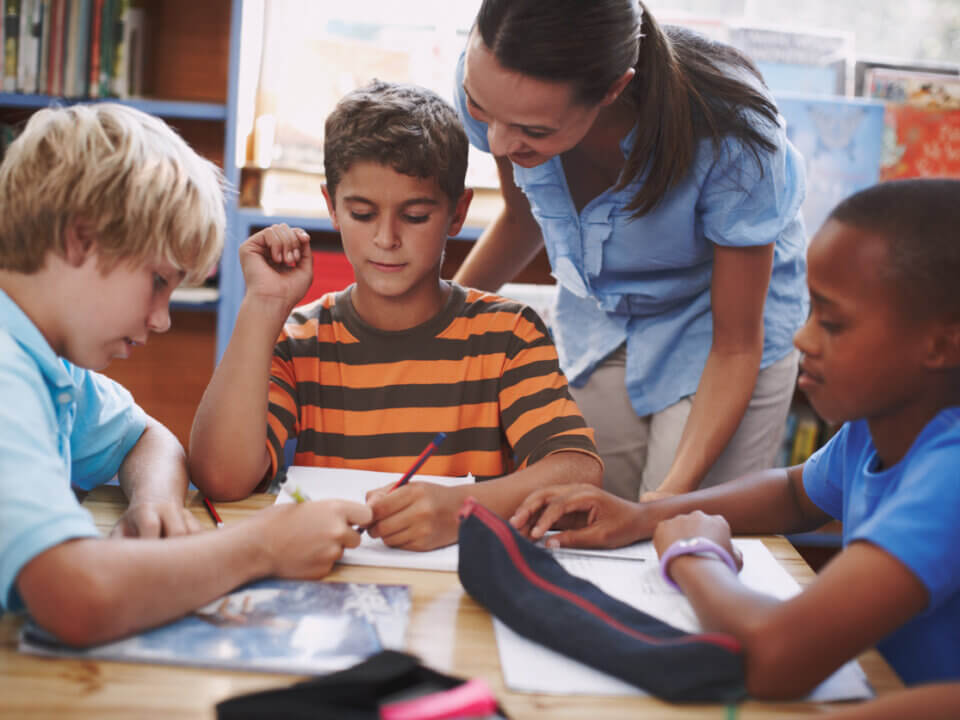A Comprehensive Guide to Prepare Your Child for Primary 1 in 2019 (The last-minute Parent’s Cheat Sheet)
Published on 10 January 2019 by Edu Aid | For Parents

The holidays season is almost coming to an end, and in the blink of an eye we will hit 2019. For some parents, this comes with more jitters as your child enters a new milestone – Primary 1. Is your child adequately prepared for Primary 1? Can your child thrive in the new environment? Here’s a good checklist with recommended preparation action plans for your reference.
Socio-Emotional Readiness
The ability to communicate effectively with peers and teachers, and establish healthy friendships is a necessary aptitude that helps a child to thrive in school. There are some children who tend to feel more fear and anxiety in unfamiliar places, or with unfamiliar people and may not easily adapt to a totally new school environment. To prepare a child for socio-emotional readiness, you can:
- Encourage your child to join more class-based enrichment activities. If you do not want to sign your child up for any long-term enrichment class, simply sign up for one-time classes just to let him have a feel of class-based activities with new people.
- Arrange for more play dates for your child, especially with children who are going to the same school as your child. Some children take more time to warm up with others, and if they can start warming up privately before school starts, they will be happy to see each other in a new school. Even if they end up in different classes, there is a sense of safety knowing that there is at least someone he is familiar with in the school.
- Let your child practice buying his own food outside. Allow your child to order his own food, so that he learns how to communicate clearly to strangers. After that, let him bring his own food to the table on a tray. Help him check if he has made the correct payment amount. Practice and practice counting money.
- If your child always has an adult he knows following him wherever he goes, it’s time to let him explore safe places alone and figure how to navigate. Bring him to a huge enclosed space, like an indoor playground and let him explore the place on his own. Do not follow him wherever he goes. Help him to learn to independently find his way and explore new areas on his own. This helps him get comfortable when he is on his own, and perhaps he will learn to interact with his peers too!
Academic Readiness
Your child’s ability to perform academically will be another boost to his confidence in school. Check your child’s school standard and expectations. Is your child’s current aptitude enough for him to perform in Pri 1? Some schools do not expect Pri 1 children to be able to read on their own, while others do. Some schools begin with simple assessments like reading words. Others begin with passage reading in Term 1. Find out more about the assessment levels from your child’s school and prepare your child sufficiently. On top of foundational syllabus, it helps if you can also prepare your child for some of these “21st century competencies” that schools have been raving about, with the following recommendations:
- Increasing global awareness – share with your child more on major global events, depending on his readiness. It could be in the area of politics, sports, environment, culture, anything depending on his interest. You can bring your child to museums to learn, read books on other countries and cultures, or open discussions at the dinner table about current news. Get your child to practice some critical thinking by seeking his opinions on issues while feeding him with fresh information.
- Inventive thinking – Play with your child more! More play helps in inventive thinking. Play with all kinds of toys and do not restrict how your child likes to play with his toys. Let him break the rules, and recreate his own rules. Play pretend games. Get your child to tell a story. Allow creation to happen, and show your appreciation to his creation.
- Self-directed learning – train your child to learn on his own initiative. Ask him curious questions and provide enough resources for him to find the answers. Reward him when he gets correct answers.
Physical Readiness
Is your child able to adapt well to his new routine? Can you child wake up on time, finish his breakfast, put on his uniform and get to school on time? Is your child time-conscious in school, especially during breaks? Is your child able to follow his new school routine? Is your child organized in keeping his homework and notes? Here’s what you can do to prepare your child:
- Set in a routine now. Help your child to get used to waking up early (if he is not used to it yet). Buy a new and interesting alarm clock for him if needed. Try to follow the school’s meal times so that your child does not feel hungry when it’s supposedly lesson time or too full to eat during break times. Make sure your child can finish his food within a stipulated time. Train your child to focus while eating, and not get too distracted, especially when eating with his peers.
- Keep your child’s room organized. Help him to learn how to organize his belongings. Teach him how to pack his bag in an organized manner. Teach him to value his belongings and take good care of them. If your child is more of a “scatter-brain”, you may need more tools to help your child to safe keep his belongings, like having a chain attached to his wallet.
Prepare Yourself
Lastly, prepare yourself to let go. After you have done all you can to prepare your child the next 2 weeks, learn to trust your child with the school when the time comes. Everyone makes mistakes, and your child will forget to bring a few things, miss out on some breaks, miss some homework or occasionally not pay attention in class. JUST CHILL. This is a learning journey for your child. Learn to let go, and trust the school to help your child learn at his own pace. Your child will survive. Learn to let go, and you can be a happier and better parent for your child in his new phase in life.
All the best!





